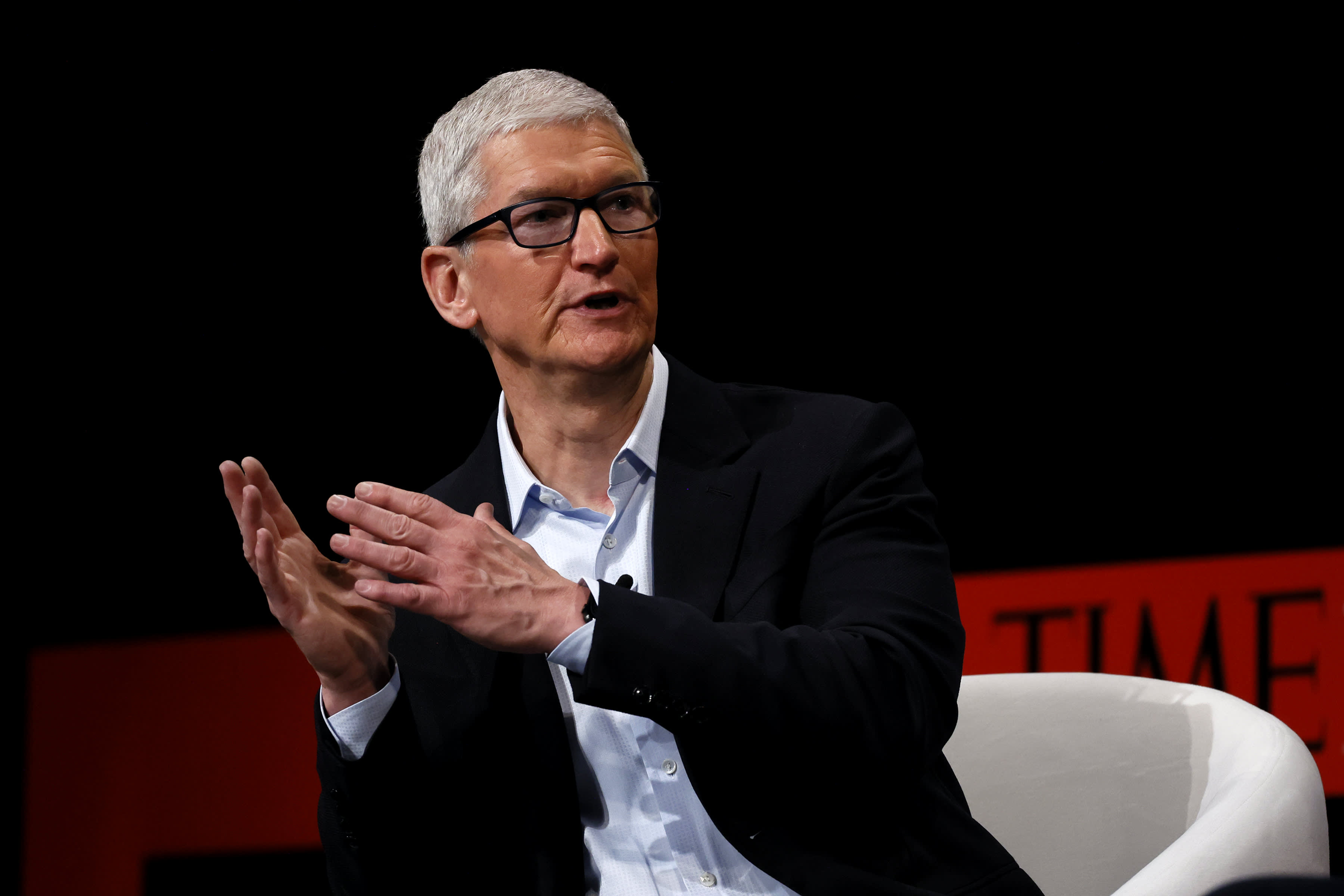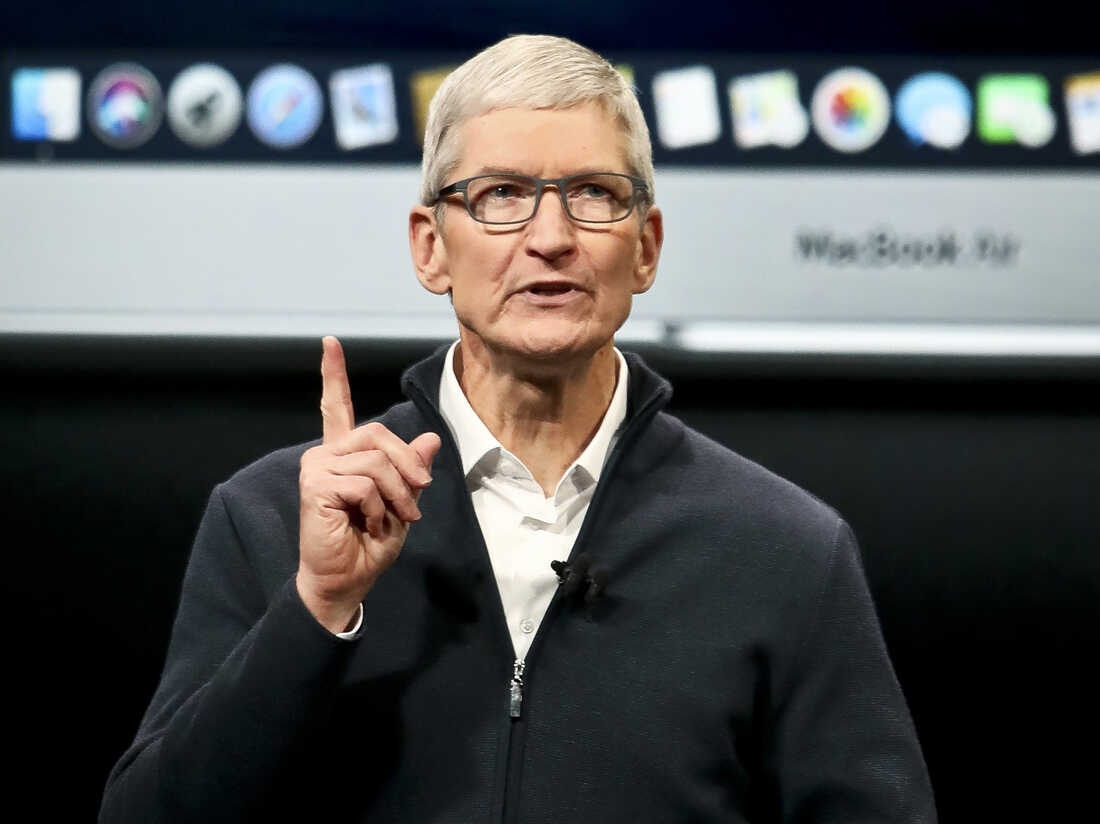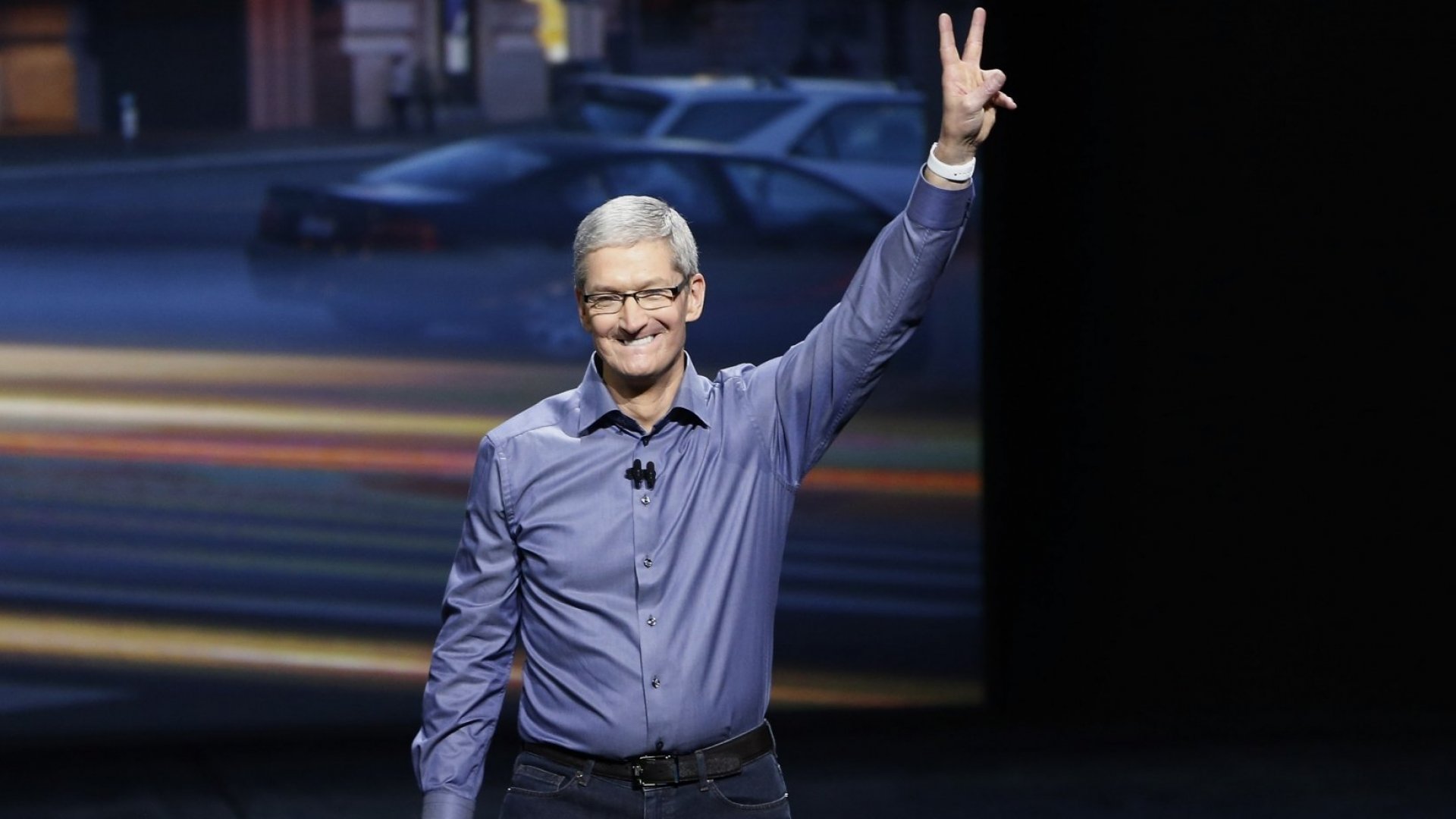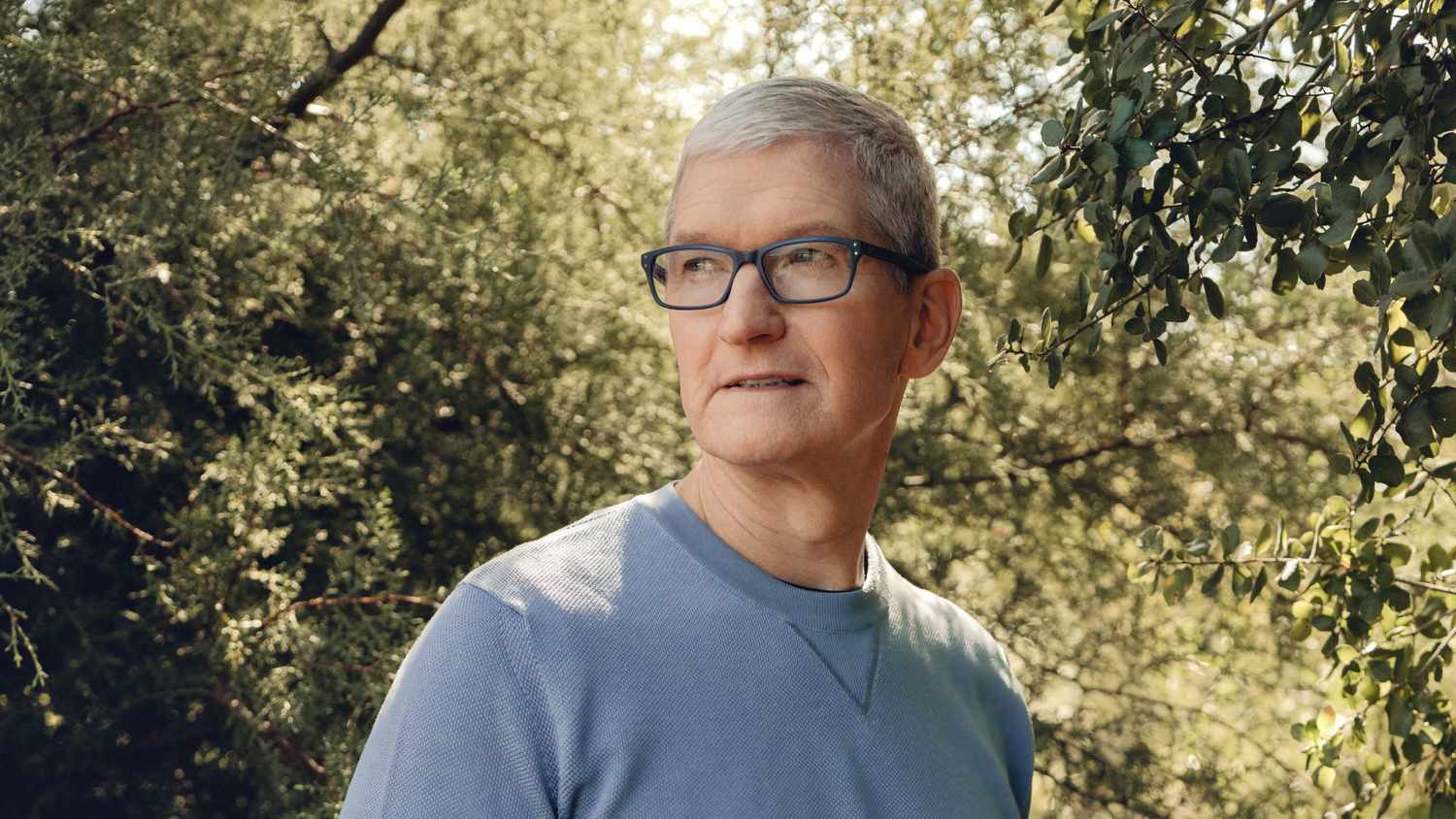Tim Cook - A Visionary Leader Shaping The Future Of Apple
Discover the impactful journey of Tim Cook, Apple Inc.'s visionary CEO, as we delve into his leadership, innovations, and contributions that have shaped the tech giant's success. Explore the profound influence of Tim Cook in the ever-evolving world of technology.
Author:James PierceReviewer:Emily SanchezFeb 14, 202419 Shares6.3K Views
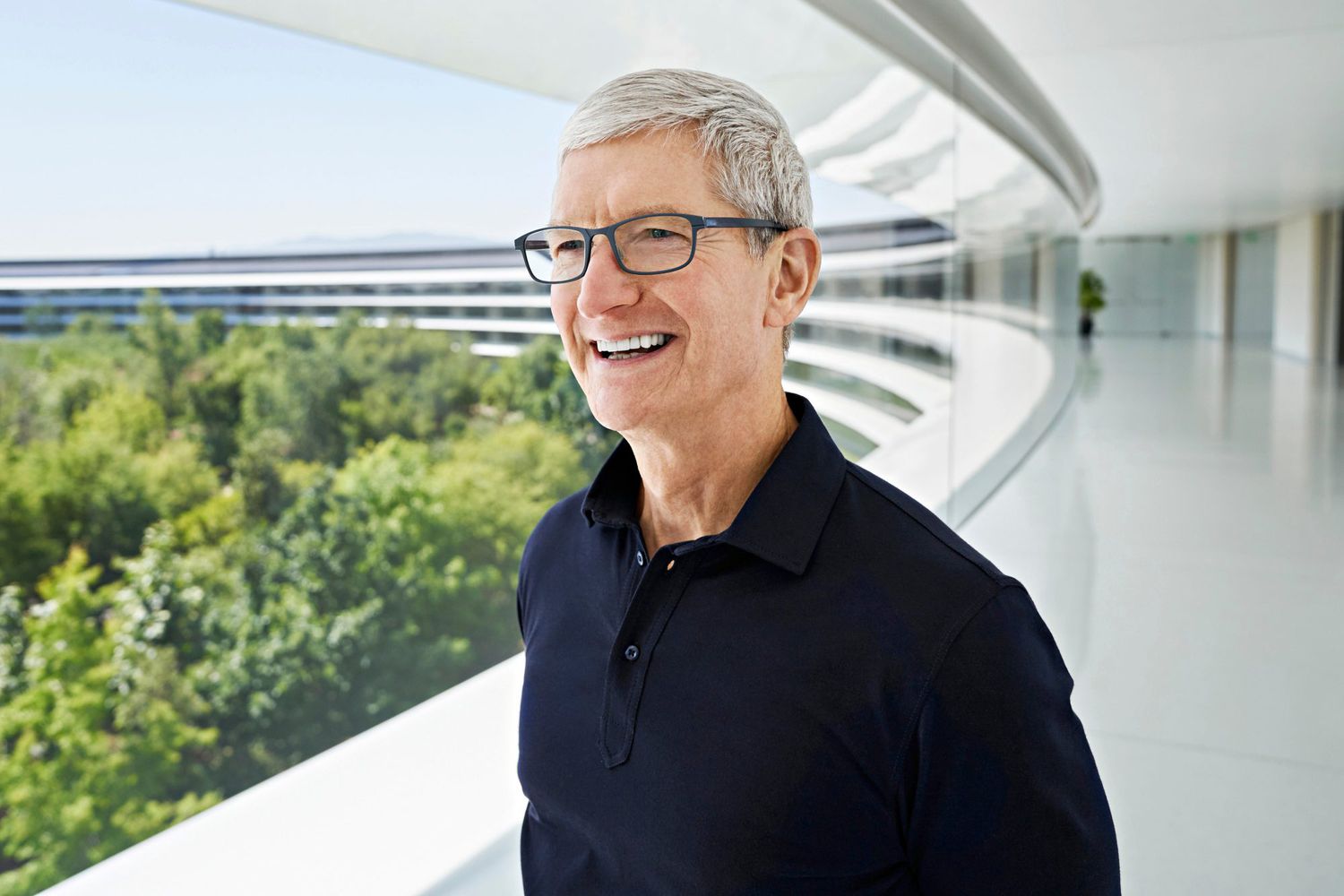
Tim Cook, the CEO of Apple Inc., stands at the helm of one of the most influential and iconic technology companies in the world. Since taking over from the legendary Steve Jobsin 2011, Cook has not only sustained Apple's reputation for innovation but has also left an indelible mark on the company's trajectory. This article explores the life, leadership style, and enduring contributions of Tim Cook, offering insights into how he has steered Apple through a dynamic and ever-evolving tech landscape.
Quick Facts Abut Tim Cook
| Name | Timothy D. Cook |
| Birthday | November 1, 1960 |
| Profession | Businessperson, Entrepreneur |
| Net worth | $2.1 billion |
Early Life Of Tim Cook
Tim Cook's journey began in the quaint town of Robertsdale, Alabama, where he was born on November 1, 1960, as Timothy D. Cook. Raised in a family where hard work and dedication were paramount, he was the middle child among three sons of Donald, a shipyard worker, and Geraldine, a homemaker.
Cook's academic prowess became evident during his high school years at Robertsdale High School, where he graduated second in his class in 1978. His pursuit of knowledge continued at Auburn University in Alabama, where he earned a bachelor's degree in industrial engineering in 1982. This was just the beginning of his academic journey.
Undeterred by challenges, Cook further honed his skills and knowledge by obtaining a Master of Business Administration degree from Duke University's prestigious Fuqua School of Business in 1988. His exceptional academic performance earned him the distinguished title of Fuqua Scholar, a recognition reserved for the top 10 percent of graduates in the business school.
Tim Cook Early Career
Fresh out of graduate school, Tim Cook embarked on a transformative journey in the dynamic field of computer technology. His professional narrative took shape at IBM, where he quickly ascended through the ranks, eventually assuming the role of North American fulfillment director for IBM's Personal Computer Company.
In this pivotal position, Cook adeptly managed the intricate web of manufacturing and distribution functions across both North and Latin America, honing his skills in navigating the complexities of the tech industry.
After a commendable 12-year stint at IBM, Cook's trajectory led him to the role of chief operating officer at the Reseller Division of Intelligent Electronics in 1994. Here, he demonstrated his strategic prowess in overseeing operations critical to the division's success.
In 1997, the tech luminary transitioned to the Compaq Computer Corporation, where he assumed the role of vice president of corporate materials. Entrusted with the crucial responsibility of procuring and managing product inventory, Cook showcased his ability to navigate the intricacies of supply chain management in the fast-paced world of technology.
Career At Apple Of Tim Cook
In 1998, Tim Cook embarked on a pivotal chapter of his career by joining Apple as the Senior Vice President for Worldwide Operations. At this critical juncture, Apple faced considerable challenges, lacking the iconic products that would later define its success - the iMac, iPod, iPhone, and iPad.
Cook's decision to join the company was met with skepticism, as Apple struggled with declining profits and stagnation in innovation. Undeterred by the prevailing doubts, Cook embraced the opportunity to steer the company towards a new era of prosperity.
Taking on the role during a challenging period, Cook implemented strategic changes, closing Apple's factories and opting for contract manufacturers. His foresight extended to securing long-term deals, including an advance investment in flash memory.
These initiatives marked a transformative phase for Apple, turning a substantial net loss of $1 billion into a lucrative profit. Cook's adept management not only revitalized the company's financial standing but also earned him recognition for effectively controlling Apple's costs.
Promoted to lead operations in January 2007, Cook played a pivotal role in the company's Macintosh division and forged critical reseller and supplier relationships. His leadership acumen came to the forefront during Steve Jobs' health-related leave of absence in 2009, when Cook assumed the responsibility of running Apple day-to-day. The following year, in 2011, Cook's role expanded further as Jobs requested another leave of absence, eventually leading to Cook's appointment as Apple's new CEO in August 2011.
The passing of Steve Jobs in October 2011 marked a poignant moment in Apple's history, but it also underscored the enduring legacy of the partnership between Jobs and Cook. Together, they rescued the company from a precarious position in 1998, transforming it from generating less than $6 billion in revenue to exceeding $100 billion. Recognizing his significant impact, Time Magazine included Tim Cook on its list of 100 Most Influential People in the World in April 2012.
Cook's commitment to philanthropy became evident when Apple's board of directors awarded him one million shares in 2012. True to his values, Cook announced his plan to donate his entire stock fortune to charity. In May 2014, Apple made its largest acquisition to date, acquiring Beats Music and Beats Electronics for $3 billion. The subsequent years saw the introduction of the iPhone 6 in 2015 and the Apple Watch in 2016.
While some critics argued that innovation had waned under Cook's leadership compared to the Jobs era, Apple continued to dominate the tech landscape. The company consistently released new iPhone models annually, and in 2023, Apple unveiled the Apple Vision Pro, an augmented and virtual reality headset, showcasing the company's ongoing commitment to pushing technological boundaries under Tim Cook's guidance.
Other Ventures Of Tim Cook
In 2013, Cook attended a private summit convened by President Barack Obama to discuss the intricate relationship between surveillance and the internet, particularly in the wake of the revelations involving the National Security Agency and Edward Snowden.
One of the most notable moments in Cook's tenure at Apple occurred in the aftermath of the terrorist attack in San Bernardino, CA, in December 2015. Following the incident, the FBI sought Apple's assistance in unlocking an iPhone used by one of the attackers. In response, the Department of Justice ordered Apple to create custom firmware for iOS, a move that would enable investigators to unlock any iPhone for evidentiary purposes.
Tim Cook, however, staunchly opposed these demands, articulating his concerns in an open letter. He emphasized that compliance with such requests would constitute a significant breach of privacy, with potentially far-reaching and "chilling" consequences for public safety.
Beyond his role at Apple, Cook has extended his influence to the academic realm. In October 2019, he was appointed as the chairman of the advisory board for Tsinghua University's economics school. His term on the advisory board is set for three years, reflecting his sustained dedication to supporting educational initiatives.
Tim Cook's involvement in corporate governance extends to his position on the board of directors for Nike, Inc., and the National Football Foundation. As a board member of Nike, Cook not only brings his business acumen but also holds $3.4 million worth of shares in the company, further aligning his interests with the success of this global sportswear giant.
Investing In The United States And Philanthropy
In a bold move demonstrating its commitment to the United States, Apple, in early 2018, unveiled an ambitious plan to invest a staggering $350 billion in the U.S. economy.
This initiative aimed to contribute to economic growth and job creation, with the company pledging to add 20,000 new jobs over the subsequent five years. As a tangible step toward environmental sustainability, Apple committed to investing $55 billion in 2018 alone and constructing a new U.S. facility powered entirely by renewable energy.
Beyond economic contributions, Apple underscored its dedication to education and skill development. The company pledged to enhance its advanced manufacturing fund and expand coding initiatives, designed to empower students and teachers with essential computing skills.
In early February of the same year, The Wall Street Journal reported a noteworthy milestone for Apple Music in the U.S. market. Apple Music's monthly subscriptions were escalating at a rate surpassing double that of Spotify, positioning Apple to potentially surpass its competitor by summertime.
Globally, while Spotify maintained a significant lead with 70 million paying subscribers as of January 2018, Apple Music's growth in the U.S. market showcased its increasing prominence.
As the world grappled with the outbreak of the coronavirus in March 2020, Apple emerged as a corporate leader in philanthropy. The company announced a substantial donation of $15 million to global relief efforts, aiming to support communities affected by the pandemic.
In a subsequent move reflecting Apple's commitment to the health sector, CEO Tim Cook revealed that the company had initiated the production of face shields. Apple planned to ship millions of these shields to medical workers, demonstrating the company's agility in responding to urgent global needs.
Tim Cook Net Worth
Tim Cook, the distinguished American business executive renowned for his role as the CEO of Apple Inc., has left an indelible mark on the tech industry and amassed significant wealth through his leadership. Joining Apple in 1998, Cook's ascent to the role of CEO in 2011 marked a pivotal moment for the company. As of the latest available information, Tim Cook's net worthstands at an impressive $2.1 billion.
At the helm of Apple, Cook faced the daunting challenge of succeeding the visionary founder, Steve Jobs, whose peak market cap for Apple reached $350 billion. Tim Cook, however, exceeded expectations. Apple's market cap, under his leadership, has soared to unprecedented heights, currently exceeding $2.4 trillion.
Real Estate Properties Of Tim Cook
In a notable departure from the ostentatious lifestyle often associated with high-profile executives, Tim Cook, one of the highest-paid business leaders globally, resides in a surprisingly modest 2,400-square-foot home in Palo Alto, California. Purchased in 2010, just a year before assuming the role of CEO, Cook acquired the property for a relatively humble $1.9 million.
In 2018, however, Cook expanded his real estate portfolio with the acquisition of a more expansive residence. He invested $10.1 million in a 10,000-square-foot home situated within the exclusive confines of the Madison Club, a gated community in La Quinta, California.
Tax Rates And Other Controversies Of Tim Cook
In a notable 2013 Senate hearing, Cook defended Apple against accusations of attempting to circumvent U.S. tax laws by storing income overseas. He emphasized that Apple maintained one of the highest effective tax rates among major corporations. Despite facing questioning, Cook maintained the company's commitment to abiding by tax regulations.
The release of the "Paradise Papers" in November 2017 shed further light on Apple's tax practices. Following an investigation by the European Union into Apple's dealings with the Irish government, it was revealed that the company paid a remarkably low tax rate, as little as 0.005%, on its vast holdings in Ireland.
In response, Apple relocated its assets to the Channel Islands off Normandy. Subsequently, the EU mandated Apple to pay approximately $14.5 billion in unpaid taxes.
In late 2017, Apple faced a wave of lawsuits after publicly admitting to deliberately slowing down the performance of aging iPhones. The company claimed this measure was intended to adapt to diminishing batteries, but critics argued that it deceived customers into upgrading to new models.
Around the same time, revelations about Tim Cook's travel arrangements stirred further discussion. Cook was informed that he could exclusively use private jets for both business and personal transport, citing security and efficiency concerns. In 2017, Cook's travel expenses amounted to $93,109, while his personal security expenses totaled $224,216.
Tim Cook Personal Life
In a groundbreaking move in 2014, Tim Cook made history as the first Chief Executive at a Fortune 500 company to publicly identify as gay. He chose the platform of Bloomberg Business to share this personal revelation, breaking barriers and challenging stereotypes within the corporate world. Shedding light on his decision to come out, Cook, in a 2015 appearance on The Late Show with Stephen Colbert.
In terms of his personal life, Tim Cook remains unmarried and does not have children. His focus on Apple's expansive operations and his commitment to privacy have shaped a lifestyle that keeps personal details firmly out of the public eye.
Cook's engagement in politics is also notable. He has contributed to the presidential campaigns of both Barack Obama and Hillary Clinton. In a noteworthy turn of events, Clinton even considered Tim Cook as a potential running mate in her 2016 campaign, a testament to the influence and respect he commands in political circles.
Frequently Asked Questions
What Is Tim Cook's Educational Background?
Tim Cook earned a Bachelor of Science in Industrial Engineering from Auburn University and an MBA from Duke University's Fuqua School of Business.
How Did Tim Cook Meet Steve Jobs?
Tim Cook met Steve Jobs in the late 1990s when he was working at Compaq. Jobs was impressed with Cook's operational expertise and recruited him to join Apple in 1998.
What Is Tim Cook's Management Style?
Tim Cook is known for his calm and methodical leadership style, emphasizing collaboration, innovation, and a customer-centric approach.
Conclusion
In the fast-paced and competitive world of technology, Tim Cook has proven himself to be a visionary leader who has successfully navigated Apple through an era of immense change. His steady hand, commitment to innovation, and emphasis on social responsibility have shaped Apple into a global force.
As we continue, Tim Cook's legacy will undoubtedly endure as a testament to the transformative power of leadership in the tech industry, leaving an impact that extends far beyond the sleek design of Apple's products. Cook's story is not only one of corporate success but also a narrative of resilience, advocacy, and the ongoing pursuit of excellence.
Jump to
Quick Facts Abut Tim Cook
Early Life Of Tim Cook
Tim Cook Early Career
Career At Apple Of Tim Cook
Other Ventures Of Tim Cook
Investing In The United States And Philanthropy
Tim Cook Net Worth
Real Estate Properties Of Tim Cook
Tax Rates And Other Controversies Of Tim Cook
Tim Cook Personal Life
Frequently Asked Questions
Conclusion

James Pierce
Author

Emily Sanchez
Reviewer
Latest Articles
Popular Articles
